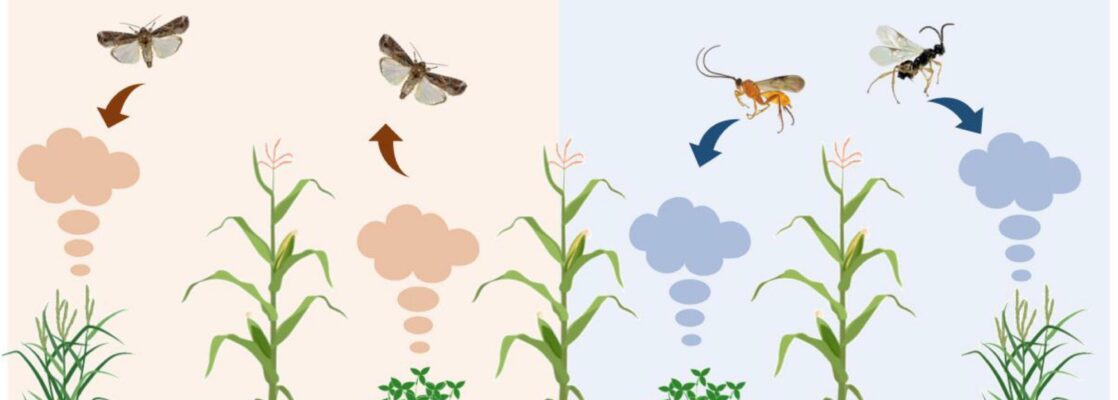Abstract
Fall armyworm, Spodoptera frugiperda, is a serious invasive pest in Africa but “Push- Pull” companion cropping can substantially reduce infestation. Here, we elucidate the underpinning chemical ecology mechanisms. We hypothesized that companion crop volatiles repel herbivores (push) while attracting natural enemies (pull). Headspace volatiles collected from companion plants (Desmodium intortum, Desmodium uncinatum, Brachiaria Mulato II) were used in bioassays and electrophysiological recordings with S. frugiperda and parasitoid wasps. Insect populations, plant damage and herbivore parasitism were assessed in field plots. Coupled GC-electroantennogram (GC-EAG) recordings showed robust responses to certain aromatic and terpenoid volatile compounds. In wind tunnel bioassays, maize volatiles mixed with Desmodium volatiles were less attractive to moths than maize alone. In oviposition bioassays, S. frugiperda laid significantly fewer eggs on maize when Desmodium volatiles were present. Conversely, in an olfactometer bioassay, parasitoid wasps were attracted to the scent of both Desmodium spp. (intercrop) and the Brachiaria border crop. Our data provide evidence of the mechanisms underpinning reduced S. frugiperda infestation in the Push-Pull companion cropping system, i.e., volatiles from companion crops repel S. frugiperda while attracting its parasitoid natural enemies. These findings explain why Push-Pull field plots had fewer S. frugiperda larvae and lower crop damage than monocropped maize.
Authors
Islam S. Sobhy, Amanuel Tamiru, Xavier Chiriboga Morales, Dickens Nyagol, Duncan Cheruiyot, Frank Chidawanyika, Sevgan Subramanian, Charles A. O. Midega, Toby J. A. Bruce and Zeyaur R. Khan
Download PDF
Bioactive Volatiles From Push-Pull Companion Crops Repel Fall Armyworm and Attract Its Parasitoids


